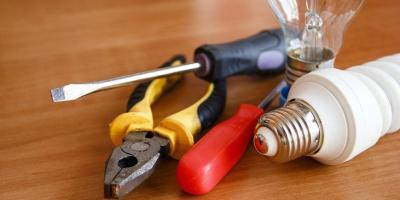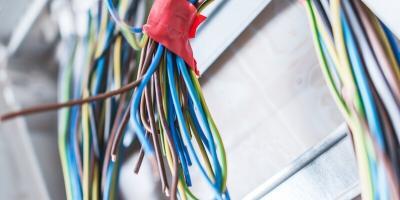A home should provide a safe and comfortable environment for you and your family. But there is a hidden danger in your electrical system that might cause unwanted risks and accidents if you are not careful and mindful enough.
One of the leading causes of residential fires starts from an electrical issue. A small wiring explosion can put millions of properties to ashes and lives at stake — not only for you but for the neighbourhood as well. That’s why you need to learn the importance of taking care of your circuit connection. And one of the electrical issues you need resolve is how to handle the dangers of electrical overloading.
What is Electrical Overloading?
In every circuit, there is a corresponding load it can carry and distribute. It usually depends on your home’s installed circuit breakers — most households have 15-20 amp capacity for each circuit. The overall electric load should meet the requirements of all your appliances, lighting fixtures, and devices. A regular house has at least 100-amp capacity, but if you have an air-conditioned unit and electric range, then you might want to upgrade the switchboard for a better amperage.
Exceeding the maximum capacity will result in an electrical overload that might cause different connection problems or worse a fire. To understand more and protect your home from the risks, here are some of the dangers an overloaded circuit might bring and their corresponding prevention:
Broken Appliances
Appliances need electricity to work. But proper circuit management is essential to keep them from electrical harms. Engineers usually design a house dedicating a single circuit for lights, another one for general appliances, and a separate individual circuit for a high-powered device such as a heating system.
It is crucial to know what devices are connected to a single circuit so you can have an idea on how to manage your connection. Plugging in all of your appliances at once might cause damages in their internal parts. It is expensive to purchase an appliance unit altogether, so you must avoid overloading at all costs.
Adding and upgrading circuit breakers are the keys to avoid harming your appliances. You also need an electrical home inspection each year to ensure the safety of your electrical connection.
Wiring Damages and Faults
Your home’s electrical connection is prone to damage from an electric overload, especially when it is an old and outdated system. Through time and continuous overloading events, wires are subjected to wear and tear if you don’t manage the appliances’ power requirements.
Spotting wiring issues is a lot harder than imagined. The connection is not visible that why you need to look for these signs to know if you have faulty wires:
- Flickering lights
- Overheating outlets
- Buzzing sounds
- Burning marks in switches or powerpoints
- Sudden malfunction of appliances
It is best to call for licensed level 2 electricians when you encounter these problems. They are experts when it comes to fault findings and electrical repairs.
Tripping of Circuit Breakers
Circuit breakers (or fuses in old wiring system) are the first line of defence against electrical overloading. As mentioned earlier, a single circuit has a dedicated load capacity, which is about 15-20 amp. When the power exceeds the circuit breaker’s full capacity, it trips (or fuses blow). It is safe when it happens once or twice. But if it occurs often, electrical overloading is the cause of the problem.
Don’t hesitate to call for an emergency electrician to make sure your circuit breakers are safe and in top condition. Also, make sure to follow guidelines on how to avoid circuit breaker from tripping.
Fire Incidents
When circuit breakers fail due to the strain of overloading, it might trigger a fire incident. And no one wants that, right? You must protect your family and the community, so prevent overloading at all costs. Listed below are some steps to take to avoid electrical overloading:
- Unplug appliances when not in use.
- Calculate electric load capacity and manage the connected devices according to the computation.
- Install safety devices such as GFCI outlets and surge protectors.
- Upgrade the overall load capacity of your connection.
- Conduct electrical rewiring when necessary.
Conclusion
Electrical overloading is a serious threat not only in your connection but also for the safety of the community. It causes dangers, which damage appliances, wirings, and electrical devices. These are fire-risk when you are not careful enough. Take note that you need to solve the overloading issues right away.
Fortunately, Gordon Powers is at your service to solve your electrical overloading problems. Our team of professional and expert electricians can install, repair, and upgrade circuit and switchboard according to your needed electric load.
We assess and inspect your connection with the best of our abilities. We are the leading electricians in Sydney who continue to serve our customers’ electrical needs no matter how big or small the job is.
So what are you waiting for? Experience the best electrical services in Sydney by calling (02) 9199 7480 or send us a message via email.










